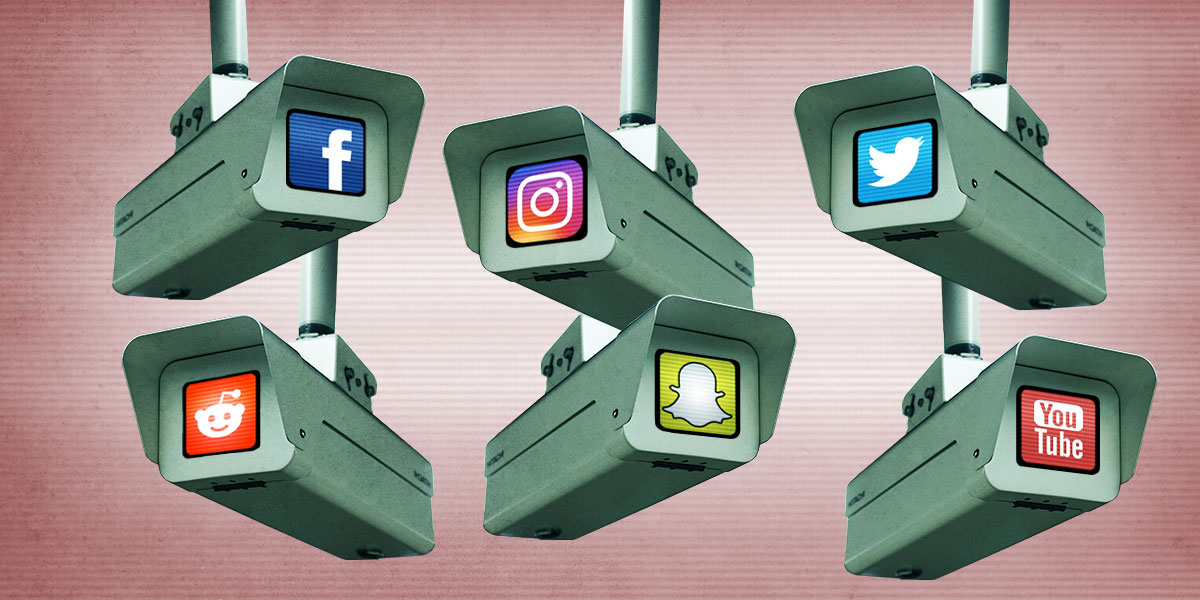Special thanks to legal intern Alissa Johnson, who was the lead author of this post.
EFF recently filed an amicus brief in the U.S. Court of Appeals for the D.C. Circuit urging the court to reverse a lower court decision upholding a State Department rule that forces visa applicants to the United States to disclose their social media identifiers as part of the application process. If upheld, the district court ruling has severe implications for free speech and privacy not just for visa applicants, but also the people in their social media networks—millions, if not billions of people, given that the “Disclosure Requirement” applies to 14.7 million visa applicants annually.
Since 2019, visa applicants to the United States have been required to disclose social media identifiers they have used in the last five years to the U.S. government. Two U.S.-based organizations that regularly collaborate with documentary filmmakers around the world sued, challenging the policy on First Amendment and other grounds. A federal judge dismissed the case in August 2023, and plaintiffs filed an appeal, asserting that the district court erred in applying an overly deferential standard of review to plaintiffs’ First Amendment claims, among other arguments.
Our amicus brief lays out the privacy interests that visa applicants have in their public-facing social media profiles, the Disclosure Requirement’s chilling effect on the speech of both applicants and their social media connections, and the features of social media platforms like Facebook, Instagram, and X that reinforce these privacy interests and chilling effects.
Social media paints an alarmingly detailed picture of users’ personal lives, covering far more information that that can be gleaned from a visa application. Although the Disclosure Requirement implicates only “public-facing” social media profiles, registering these profiles still exposes substantial personal information to the U.S. government because of the number of people impacted and the vast amounts of information shared on social media, both intentionally and unintentionally. Moreover, collecting data across social media platforms gives the U.S. government access to a wealth of information that may reveal more in combination than any individual question or post would alone. This risk is even further heightened if government agencies use automated tools to conduct their review—which the State Department has not ruled out and the Department of Homeland Security’s component Customs and Border Protection has already begun doing in its own social media monitoring program. Visa applicants may also unintentionally reveal personal information on their public-facing profiles, either due to difficulties in navigating default privacy setting within or across platforms, or through personal information posted by social media connections rather than the applicants themselves.
The Disclosure Requirement’s infringements on applicants’ privacy are further heightened because visa applicants are subject to social media monitoring not just during the visa vetting process, but even after they arrive in the United States. The policy also allows for public social media information to be stored in government databases for upwards of 100 years and shared with domestic and foreign government entities.
Because of the Disclosure Requirement’s potential to expose vast amounts of applicants’ personal information, the policy chills First Amendment-protected speech of both the applicant themselves and their social media connections. The Disclosure Requirement allows the government to link pseudonymous accounts to real-world identities, impeding applicants’ ability to exist anonymously in online spaces. In response, a visa applicant might limit their speech, shut down pseudonymous accounts, or disengage from social media altogether. They might disassociate from others for fear that those connections could be offensive to the U.S. government. And their social media connections—including U.S. persons—might limit or sever online connections with friends, family, or colleagues who may be applying for a U.S. visa for fear of being under the government’s watchful eye.
The Disclosure Requirement hamstrings the ability of visa applicants and their social media connections to freely engage in speech and association online. We hope that the D.C. Circuit reverses the district court’s ruling and remands the case for further proceedings.



